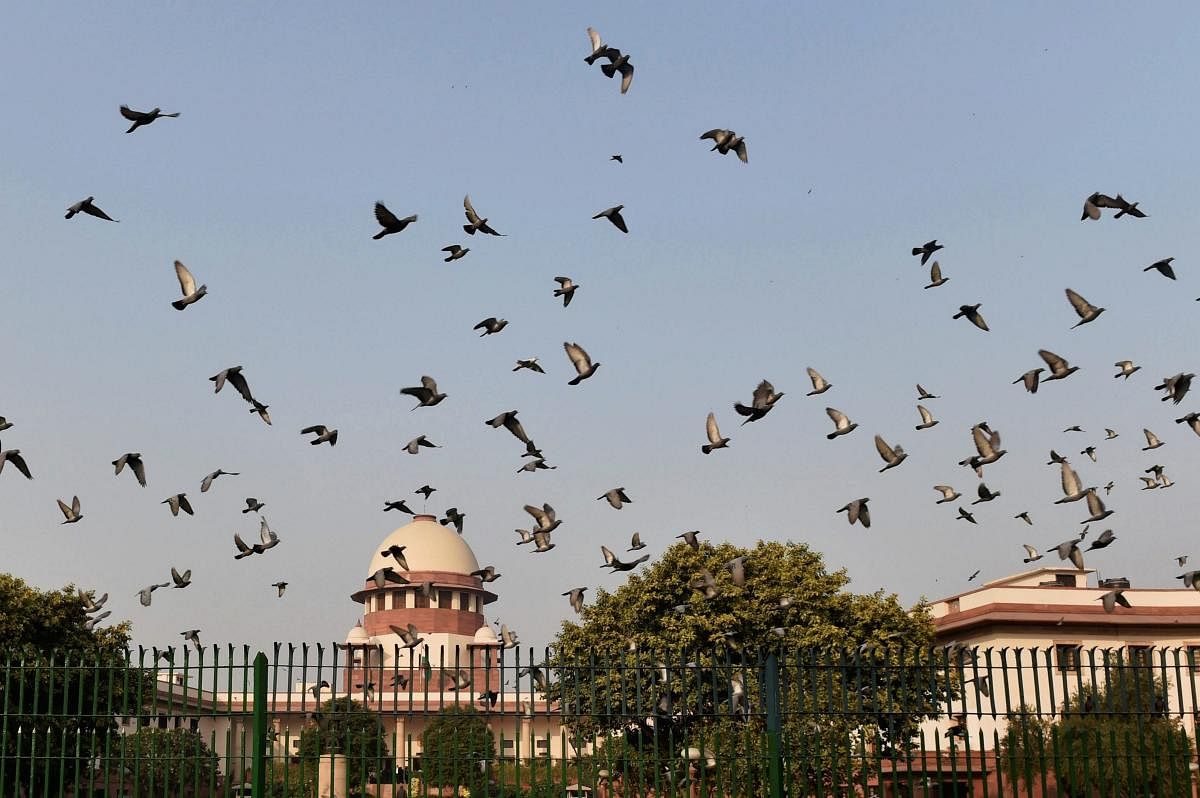The Supreme Court on Thursday asked the Tamil Nadu government as to why it did not file a complaint with the Union government in “proper format” and sought a direction to refer its plea against Karnataka for construction of “large dams” across Markandeyanadhi to Inter-State Water Dispute Tribunal.
A bench of Justices U U Lalit and Vineet Sharma put queries to senior advocate Shekhar Naphade as he argued for issuing a restraint order against Karnataka from proceeding further in the construction of the dam, of which the upper riparian the state maintained, was meant for drinking water purposes.
Tamil Nadu sought a direction to the Karnataka government from proceeding against the construction of a check dam and diversion structure across the Pennaiyar river and its tributaries, and pumping water from them to the existing tanks in the Pennaiyar basin.
The court, which reserved its order on TN's application, cited the Rule 3 framed under the Inter-State Water Dispute Act, 1956, asking the state as why it did not lodge a complaint with the Centre. “If it is a water dispute and in the state like Tamil Nadu, Advocate General or the other counsel must have advised sending a complaint to the Union government for sending the matter to the tribunal,” the bench asked.
“We don't have a detailed project report. We sought it in 2017. My common law right is affected. The collusion of the Centre and Karnataka is complete. We have given a series of letters objecting to it,” Naphade responded.
Senior advocate S Wasim A Qadri, appearing for the Union government, submitted that there has to be a specific complaint by a state for reference to inter-state water tribunal.
“On November 27, 2017, a tender was called for. We have not come late. I knocked at the doors of the central government. We wrote several letters and complained about construction and diversion. It is much less than fair for the Union government to contend we have made no complaint. Law of notice has to be liberally construed. In a substance, it is our complaint,” he said.
Senior advocate Shyam Divan, along with advocate V N Raghupathy, appearing for Karnataka, questioned maintainability of the suit as well as the application by Tamil Nadu.
“There are settled principles of delay and laches. As much as 75 to 80% of the project has been completed. It should be allowed to go on. Drinking water is on the highest priority of national water policy of 2002. This court has also recognised the principle of return flow. As much as 20% of water is actually impounded and the remaining still go back,” they said.
The state also pointed out 75% of the river basin fall in Tamil Nadu. Land acquisition for the project commenced way back in 2009, and the diversion of land started on December 4, 2012, they added.

